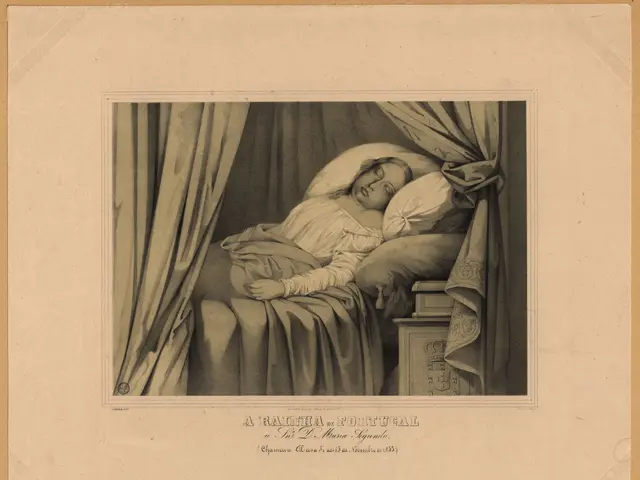Poor Sleep over Three Nights May Increase Heart Health Risks in Young Men, Study Finds
Impact on Cardiovascular Health: Insufficient Physical Activity Cannot Compensate for Poor Sleep Quality
A study led by researchers from Uppsala University has revealed that just three consecutive nights of inadequate sleep could negatively impact heart health, particularly through increased inflammation.
In the crossover study, scientists monitored the biomarkers of 16 young men with healthy weights after they underwent sessions of poor sleep and healthy sleep. The findings show that the biomarkers associated with inflammation and heart health increased after only three nights of poor sleep, as compared to a normal sleep session.
The Centers for Disease Control and Prevention recommend that adults get at least seven hours of sleep per night; however, achieving this can sometimes be challenging. According to the study authors, this research expands on existing knowledge about short-term sleep deprivation and its impact on physiological factors.
During the study, each session included three nights of monitoring in a sleep lab. In one session, the men underwent 3 nights of restricted sleep, averaging only 4.25 hours per night. The researchers collected blood samples from the participants in the morning and evening, as well as before and after high-intensity exercise sessions. In the other session, the participants enjoyed a normal night's sleep of around 8.5 hours on average.
After analyzing 88 proteins related to cardiovascular disease, the researchers found that short-term sleep restriction led to changes in the participants' biomarkers, elevating proteins associated with an increased risk of cardiovascular disease. Exercise partially counterbalanced these effects, particularly on protein levels, but the participants still experienced increases in 16 proteins related to cardiovascular disease.
The study's implications suggest that short-term sleep deprivation can have immediate and significant impacts on cardiovascular health, even in otherwise healthy individuals. This finding underscores the importance of adequate sleep in maintaining heart health.
The study's authors emphasized that more research is necessary to determine the impacts that short-term sleep restriction can have on older adults and women.
Cheng-Han Chen, MD, a board-certified interventional cardiologist, discussed the study's findings with Medical News Today. "This biomarker-based study found changes in blood chemistry associated with inflammation after a few nights of sleep restriction," said Chen. "This suggests a biochemical mechanism by which poor quality sleep can impact someone's health."
To improve sleep quality and reduce the chances of activating harmful proteins, Chen suggests maintaining a consistent sleep schedule and bedtime routine, avoiding caffeine and alcohol later in the day, avoiding electronic devices before bedtime, limiting long daytime naps, exercising regularly, and following a healthy diet. Further studies are necessary to determine how these practices may impact heart health.
- The study, led by researchers from Uppsala University, has revealed that short-term sleep deprivation may increase the risks of cardiovascular diseases in young men.
- The findings show that consecutive nights of inadequate sleep can lead to increased biomarkers associated with inflammation and heart health, compared to a normal sleep session.
- The Centers for Disease Control and Prevention recommend adults get at least seven hours of sleep per night, but achieving this can sometimes be challenging.
- During the study, participants experienced changes in their biomarkers after short-term sleep restriction, elevating proteins associated with an increased risk of cardiovascular diseases.
- Exercise partially counterbalanced these effects, but the participants still experienced increases in 16 proteins related to cardiovascular disease.
- The study highlights the importance of adequate sleep in maintaining cardiovascular health, and more research is needed to determine its impacts on older adults and women.
- To improve sleep quality and potentially reduce the risks of cardiovascular diseases, practices such as maintaining a consistent sleep schedule, limiting caffeine and alcohol, avoiding electronic devices before bedtime, and engaging in regular exercise and a healthy diet are suggested.








